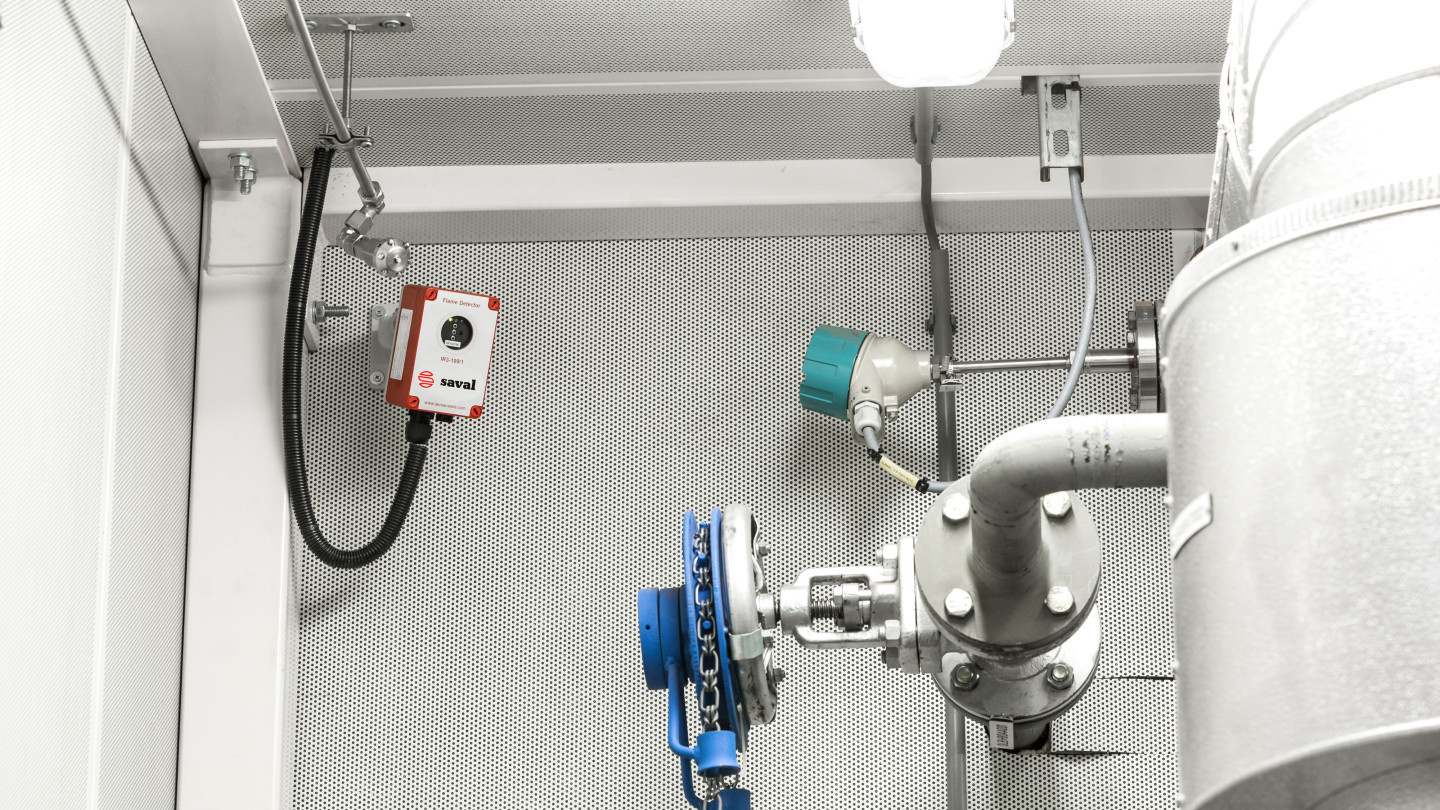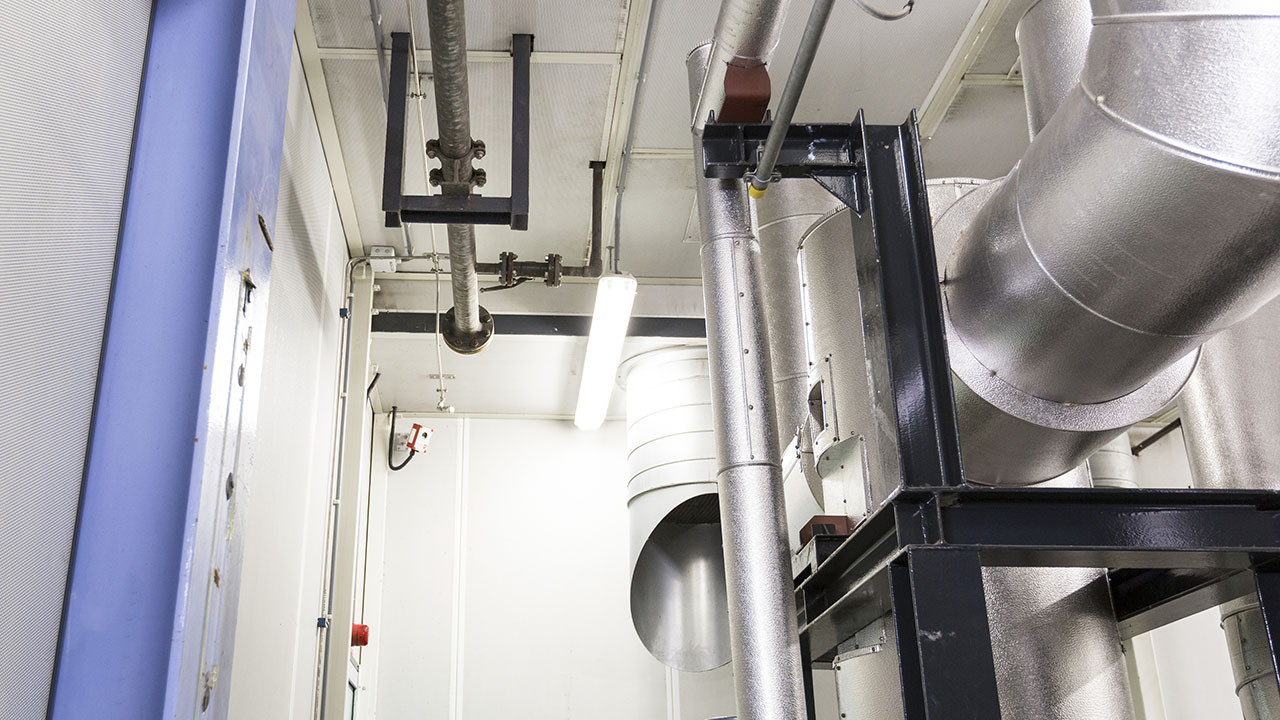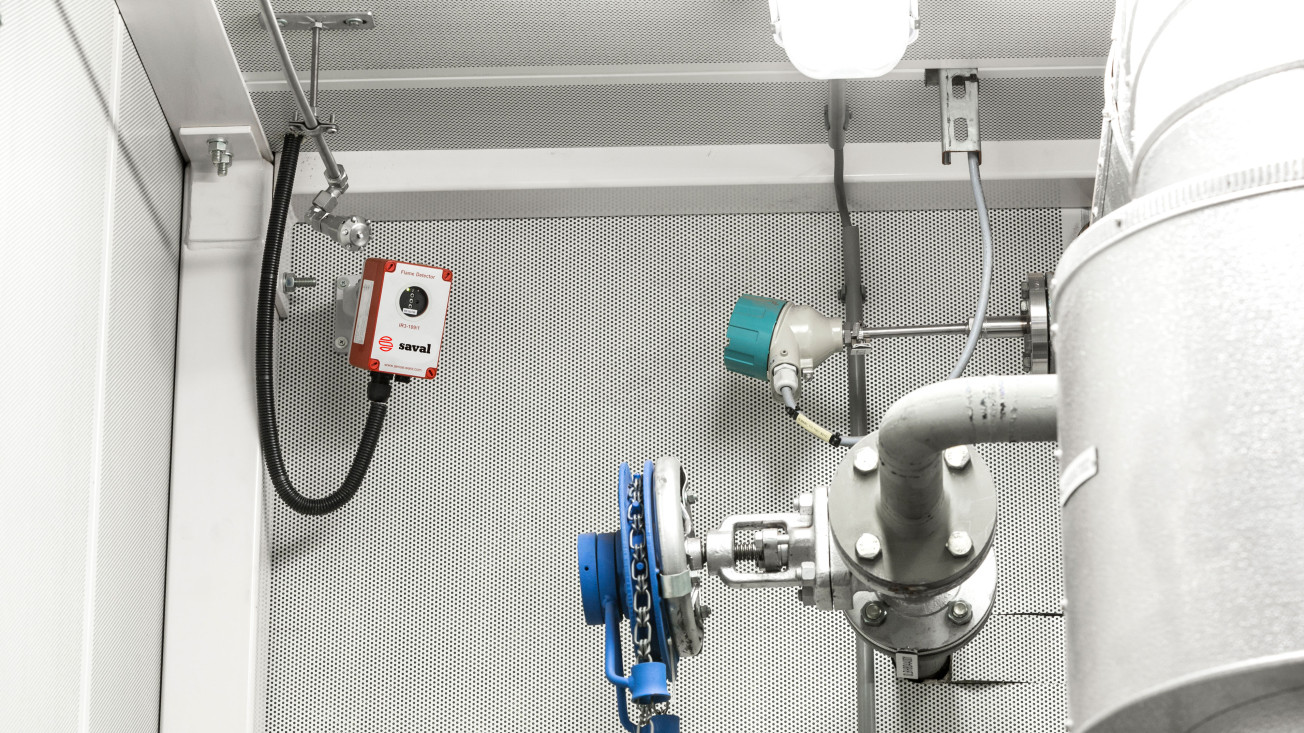
Flame detection
Flame detection consists of a sensor that detects moving light and a control system. Flame sensors respond to the infra-red radiation (IR) or ultraviolet radiation (UV) of a flame. Combined flame sensors are also available.
Where can flame detection be applied?
The number of flame sensors required depends on the area to be protected. Flame detection is particularly suitable where there is an increased risk of explosion.

The system
Every substance has a characteristic radiation pattern when it burns. For example, burning hydrogen emits high UV radiation but no IR radiation, as do magnesium, sulphur and ammonia. Burning hydrocarbons like wood, plastic, alcohol, oil and derivatives like natural gas, propane and butane produce both UV and IR radiation. Naturally it is important to choose the appropriate flame sensor for the substances stored and their radiation patterns.

